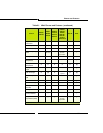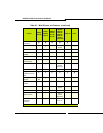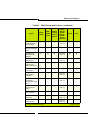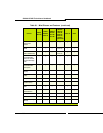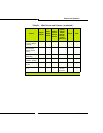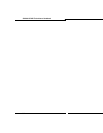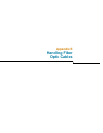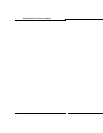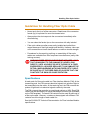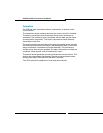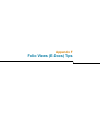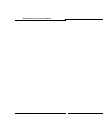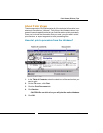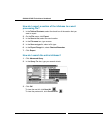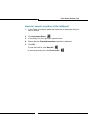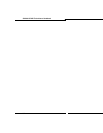
395
Handling Fiber Optic Cables
Guidelines for Handling Fiber Optic Cable
• Never touch the tip of a fiber connector. Cleanliness of the connector
ferrule (tip) is important for error-free transmission.
• Always place the dust caps onto the connectors immediately after
disconnecting.
• You can clean the ferrule tips on the connectors with ethyl alcohol.
• Fiber optic cables are often more easily installed and pulled than
copper because of their light weight and flexibility. However, take care
not to exceed the minimum bend radius or maximum tensile strength.
• Procedures for the repairing, splicing, or assembling of fiber optic
cables are available from fiber component manufacturers (many offer
training courses).
Specifications
At each end of a fiber optic cable is a Fiber Interface Module (FIM). At the
transmitting end, the FIM converts electrical signals into pulses of light to
be transmitted over the cable. At the receiving end, the FIM converts the
pulses of light back into electrical signals usable by the node.
The FIM connects the controller to a peripheral cabinet, or NSU. Each FIM
variant may be identified by its optical wavelength and fiber type (indicated
on the FIM faceplate). The same FIM variant must be used at each end of
a fiber optic cable. However, a node may be equipped with different FIM
variants to suit the length of each cable run.
See the SX-200 ICP Technical Documentation for Fiber Interface Module
specifications.
WARNING:FIBER OPTIC SOURCES EMIT INFRARED LIGHT
THAT IS INVISIBLE TO THE HUMAN EYE. NEVER LOOK
DIRECTLY INTO A SOURCE OR INTO THE END OF A FIBER
ENERGIZED BY A SOURCE BECAUSE IT CAN DAMAGE THE
RETINA. WHEN WORKING WITH RAW FIBER OPTIC CABLE,
BE CAREFUL OF THE FIBER ENDS OR SLIVERS THAT CAN
PUNCTURE THE SKIN OR CAUSE IRRITATION.



